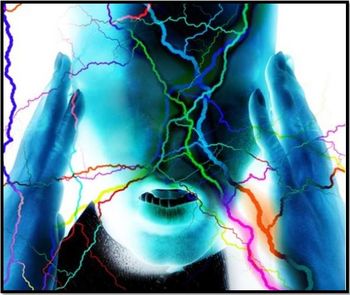
Migraines May Protect Against Cognitive Decline
BALTIMORE -- Patients who have a lifetime history of migraine with aura may retain cognitive skills longer than those who don't suffer from migraine, investigators here suggested.
BALTIMORE, April 24 -- Patients who have a lifetime history of migraine with aura may retain cognitive skills longer than those who don't suffer from migraine, investigators here suggested.
Among more than 1,400 men and women followed for 12 years, those with migraine, especially migraine with aura, retained significantly more of their immediate and delayed word recall skills than people unburdened by migraine, reported Amanda Kalaydjian, Ph.D., of the Johns Hopkins Hospital and Bloomberg School of Public Health, and colleagues.
And among patients 50 and older, the presence of migraine in general, and especially migraine with aura, was associated with a smaller degree of decline in scores on the Mini-Mental State Examination, the investigators wrote in the April 24 issue of Neurology.
Changes in cerebral vasculature or differences in neuronal activation in people with migraine could explain why they tended to have a more gradual decline in cognitive function over time, the authors suggested.
They based their conclusions on follow-up data on 1,448 adults who were part of the Baltimore cohort of the National Institute of Mental Health Epidemiologic Catchment Area Program. The longitudinal, community-based study was designed to assess the prevalence and incidence of mental disorders in five areas throughout the United States.
The data for the current study came from waves III (1993-1996) and IV (2004-2005) of the study, each of which included measures of cognitive function, including immediate and delayed recall tests and the Mini-Mental State Examination (MMSE).
The authors compared scores at baseline and at 12-year follow-up for the 204 with migraine (174 women and 30 men) and 1,244 without (722 women and 522 men), and estimated longitudinal associations between the presence of migraine and cognitive changes using generalized estimating equations regression analysis.
They found that although the people with migraine scored lower on tests of both immediate and delayed recall at baseline, they showed less decline in function over time compared with migraine-free participants.
"These associations were specific to migraineurs with aura, who declined by 1.26 (P<0.01) and 1.47 (P<0.01) words less on the immediate and delayed recall tests over the 12 years of follow-up," the investigators wrote.
They also saw a significant protective effect of migraine with aura on decline in Mini-Mental State Examination scores, but only among participants who were 50-years-old or older at baseline.
Among the men and women 50 or older at baseline, those who had migraine with aura had a decline in MMSE scores that was 0.99 points smaller than that of people with no migraines (P<0.01). In contrast, the rate of cognitive decline among people younger than 50 at baseline did not differ significantly between those with or without migraine.
"This study provides new information on the relationship between migraine headaches and cognitive functioning," the authors wrote. "Whereas most of the previous studies were completed on small clinic samples, our results are from a large, community-based sample. This is a critical difference given that until recently, only a small percentage of migraineurs sought treatment, and those who did may have differed in terms of headache severity, comorbid conditions, and other psychosocial factors. It would not be surprising, therefore, for the results of these clinical studies to differ from those conducted in a large population-based sample."
The authors noted that their results could have been confounded by a possible neuroprotective effect of non-aspirin NSAIDs or other medications used by people with migraine, or to changes in diet and/or behavior.
Newsletter
Enhance your clinical practice with the Patient Care newsletter, offering the latest evidence-based guidelines, diagnostic insights, and treatment strategies for primary care physicians.

































































































































